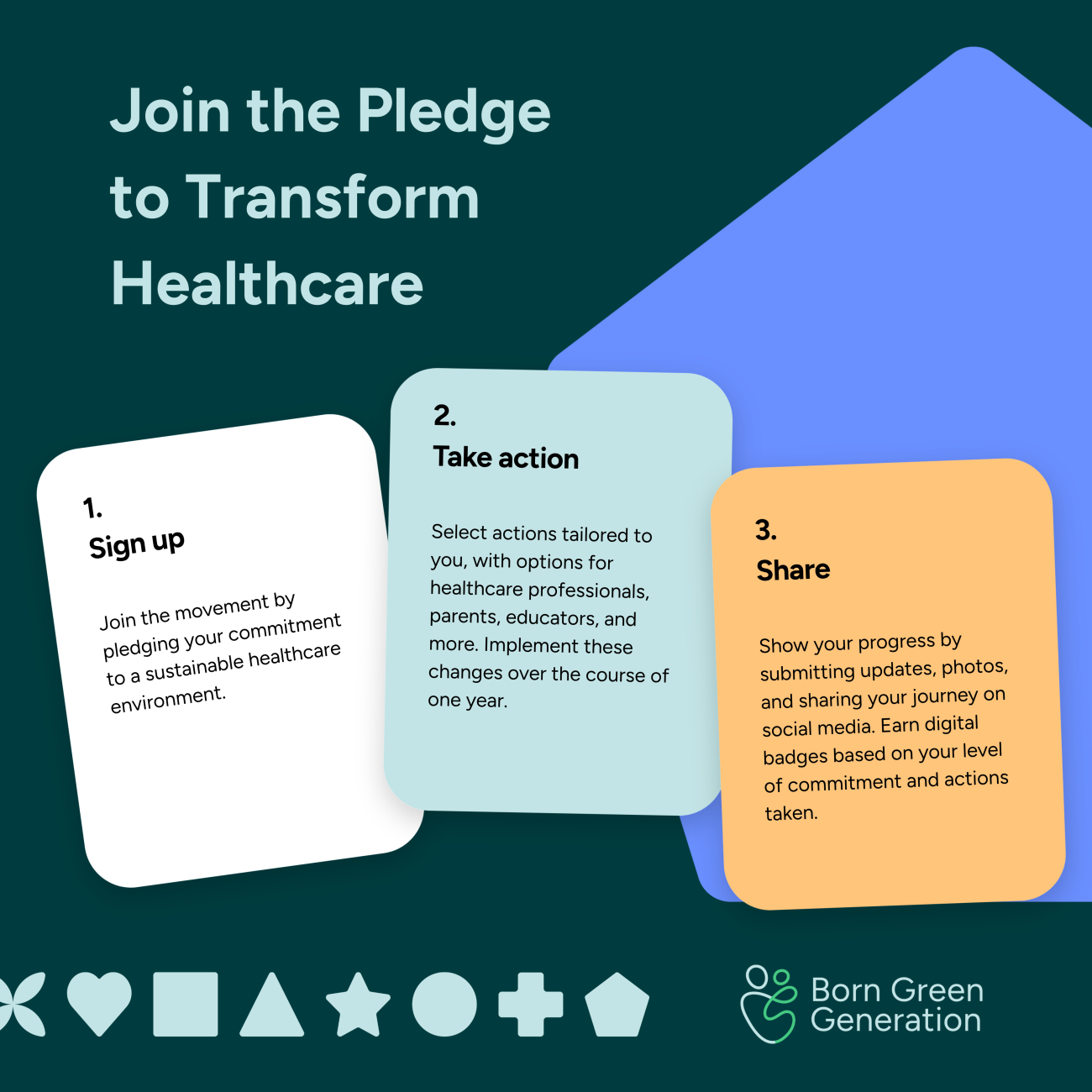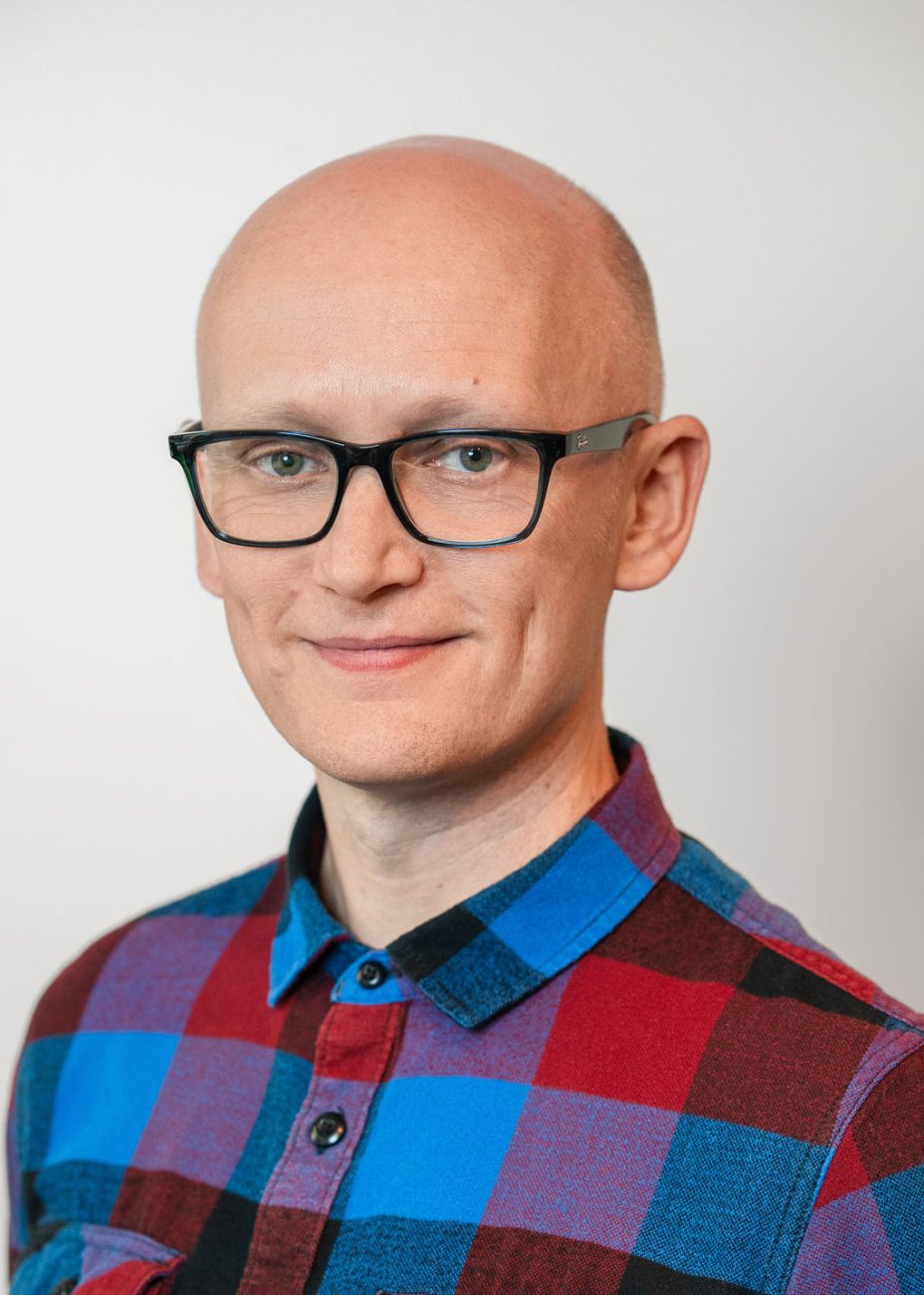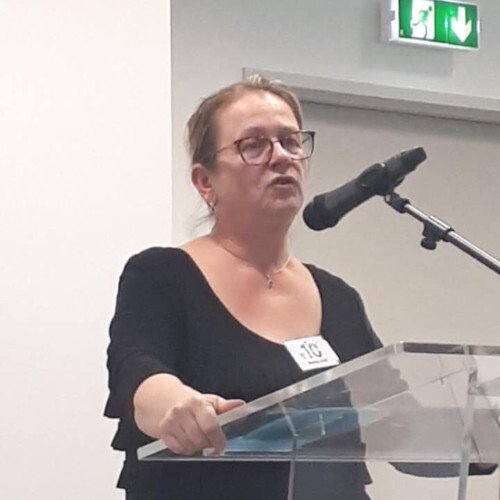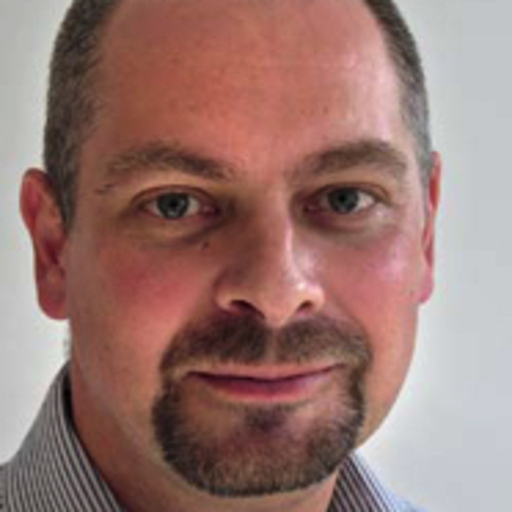Born Green Generation is a transformational project with the ambition to change healthcare delivery by protecting the first 1000 days of life. A Health Care Without Harm (HCWH) Europe initiative, working in partnership with hospitals and universities in Europe. We aim to protect current and future generations from the harmful effects of certain plastics and chemicals, while reducing unnecessary plastic waste. Over the next three years, we’re embarking on a one-of-a-kind project to make toxic-free maternity and paediatric care a reality, protecting the health and wellbeing of all new life.
A growing network of hospitals, universities, and healthcare professionals across Europe have joined a groundbreaking campaign – Born Green Generation – committed to reducing unnecessary plastics and toxic chemicals in healthcare during the critical first 1000 days.
Key partners include hospital trusts piloting sustainable ward models, such as Great Ormond Street Hospital (UK) or Centre Hospitalier Angoulême (France), universities developing modules for healthcare students, and healthcare providers adopting sustainable practices. These groups are leading the way by advocating and testing sustainable practices such as replacing plastic baby bottles with glass, introducing washable diapers, or using reusable wipes.
Born Green Generation is calling on healthcare professionals, hospital staff, parents, parents-to-be, universities, policymakers, and industry leaders to join the movement and help phase out the overuse of plastics and exposure to toxic chemicals, including endocrine disruptors, which can lead to severe and lasting health issues from chronic diseases, diabetes and even cancer.

A pledge for change
The Born Green Generation initiative invites hospitals and healthcare professionals to join a Europe-wide pledge to reduce plastics and toxic chemicals in maternity and paediatric care settings. This pledge is a call to action for healthcare stakeholders to commit to fostering sustainable practices, phasing out harmful materials, and advocating for a safer and healthier future for infants.
Hospital-based projects and academic action
Hospital trusts are already piloting new ward models to demonstrate practical ways to minimise plastic use and exposure to harmful chemicals. Meanwhile, universities are designing modules that equip future healthcare providers with the skills to embrace sustainable and circular healthcare practices. These collaborative efforts demonstrate the potential for systemic change in the healthcare sector.
Tackling a critical health and environmental crisis
As the world faces an unprecedented environmental crisis, Born Green Generation aligns with global efforts like the recently concluded fifth Intergovernmental Negotiating Committee on the Global Plastics Treaty. While the Chair’s draft reflects encouraging steps, it remains unofficial and unfinalised. With no official treaty, babies continue being exposed to harmful plastics and toxic chemicals. During the first 1000 days—from conception to age two—infants are especially vulnerable to this, yet these exposures are largely avoidable.
By 2030, the project envisions the first generation of babies born in healthcare settings free from unnecessary plastics and toxic chemicals in over a century.

I’m proud that Newcastle Hospitals is working with progressive European partner hospitals at the forefront of this ambitious movement. So far, we have made progress in switching from single use plastic to reusable alternatives and educating staff and patients on how to avoid exposure to plastics and harmful chemicals. It’s inspiring to see how some of these early interventions can be both simple and impactful—not only in reducing plastics and chemicals in our maternity department but also in minimising the waste we generate.
James Dixon, CEnv FIEMA FRSA, Associate Director – Sustainability, Newcastle Hospitals and Vice Chair, Health Care Without Harm Europe

At the Centre Hospitalier d’Angoulême, we believe that all babies should be born in healthcare environments as free as possible from these toxic substances. The initial results in our departments are very promising, and we are proud to lead by example and to help make this movement a model for other Maternity/Neonatology and Paediatrics departments across Europe and, more broadly, for the entire healthcare sector. We have reduced the exposure of newborns, children, and pregnant women to pollutants, and it is inspiring to see how some of these changes are both simple and effective—not only by reducing plastics and chemicals, including endocrine disruptors, in our department but also by decreasing the waste we produce.
Dominique Licaud, Coordonnatrice en Maïeutique, Centre Hospitalier d’Angoulême

Born Green Generation is more than a movement – it’s a call to action for individuals, organisations, and communities to prioritise health in everything we do. We must address the implications of exposure to plastics and toxic chemicals on human life and the resources that sustain us. We aim to inspire lasting change to protect a critically vulnerable population and ensure we see the first generation of babies born into safer, more sustainable, plastic and chemical-free environments in over a century. Together, we can move beyond awareness into impactful action.
Mark Wilson, Executive Director, Health Care Without Harm Europe
More information
Visit the Born Green Generation website to sign up for the newsletter, access resources, and pledge your support.